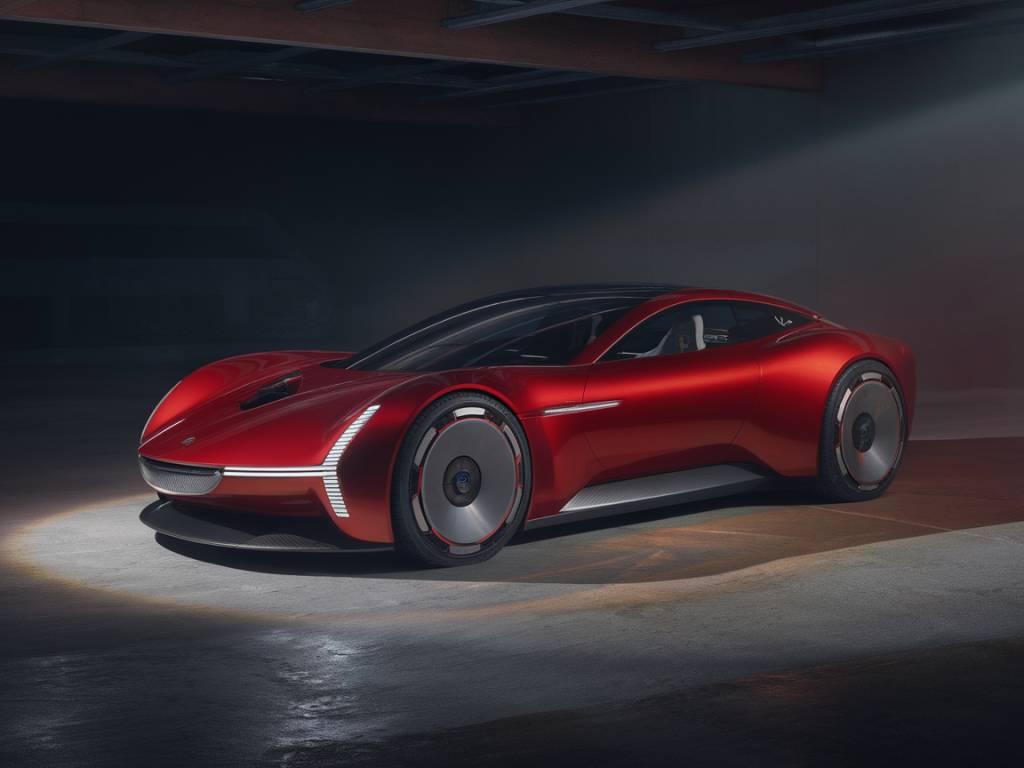The automotive industry is experiencing a significant transformation, with high-performance electric motors playing a pivotal role in the development of next-generation sports cars. These advanced electric drivetrains are not only pushing the boundaries of performance but are also aligning with global sustainability goals. In this article, we will delve into the role of high-performance electric motors in modern sports cars and explore their various facets.
Advancements in Electric Motor Technology
Technological advancements in electric motors have led to remarkable performance improvements. Key aspects include:
- Higher Power Density: Modern electric motors offer higher power density, meaning they can produce more power from a smaller and lighter package. This is critical in sports cars where weight and space are premium factors.
- Enhanced Cooling Systems: Efficient cooling mechanisms are essential to maintain performance under high load conditions. Advances in thermal management ensure electric motors can sustain peak performance for extended periods without overheating.
- Improved Control Systems: Advanced motor controllers provide precise management of power delivery, enabling refined and dynamic driving experiences.
Performance Benefits of Electric Motors in Sports Cars
The integration of high-performance electric motors in sports cars provides several performance benefits:
- Instant Torque Delivery: Electric motors deliver peak torque from zero RPM, resulting in rapid acceleration and more immediate throttle response. This characteristic is especially beneficial for sports cars, where quick acceleration is a critical performance metric.
- Enhanced Traction and Stability: Electric motors allow for sophisticated torque vectoring systems, which can distribute power dynamically between wheels, improving traction and cornering stability.
- Regenerative Braking: Electric sports cars utilize regenerative braking to recover energy during deceleration, improving overall efficiency and extending the driving range.
Environmental Impact and Sustainability
High-performance electric motors contribute significantly to reducing the environmental impact of sports cars:
By eliminating the need for fossil fuels, electric motors significantly reduce greenhouse gas emissions. Additionally, advancements in battery technology are making it possible to utilize more sustainable materials and recycling methods, further decreasing the environmental footprint.
Electric Motors vs. Traditional Combustion Engines
When comparing electric motors to traditional combustion engines, several distinctions become evident:
- Efficiency: Electric motors are more efficient than internal combustion engines, converting a higher percentage of energy from the battery into usable power.
- Maintenance: Electric motors have fewer moving parts and require less maintenance, lowering long-term ownership costs.
- Performance Characteristics: While combustion engines provide a distinct auditory experience and driving feel, electric motors offer a quieter, smoother, and more instantaneous performance.
Challenges and Future Developments
Despite the significant advantages, there are challenges to the adoption of high-performance electric motors in sports cars:
- Range Anxiety: The limited driving range of electric sports cars remains a concern for potential buyers. However, ongoing improvements in battery technology and charging infrastructure are gradually addressing this issue.
- Battery Weight: High-capacity batteries required for extended ranges add significant weight, which can affect performance and handling. Innovations in lighter and more energy-dense batteries are critical for future developments.
- Cost: The high cost of batteries and electric drivetrains contributes to the overall expense of electric sports cars. Economies of scale and advancements in manufacturing processes are expected to lower costs over time.
Case Studies: Leading Electric Sports Cars
Several manufacturers are at the forefront of integrating high-performance electric motors in their sports car models. Let’s look at some leading examples:
Tesla Roadster: The upcoming Tesla Roadster promises impressive specifications, with a claimed 0-60 mph time of under 1.9 seconds and a top speed exceeding 250 mph. These figures are made possible by the advanced electric drivetrain and efficient motor technology.
Porsche Taycan: The Porsche Taycan is one of the most notable electric sports cars on the market, featuring dual electric motors and delivering up to 750 horsepower. The Taycan showcases how traditional sports car performance can be achieved through electric power.
Rimac C_Two: The Rimac C_Two, a hypercar from Croatia, combines four electric motors to produce nearly 1,900 horsepower. This vehicle exemplifies the pinnacle of what electric motors can achieve in terms of performance and technological innovation.
The Future of Electric Sports Cars
As the automotive industry continues to grow and evolve, high-performance electric motors will play an increasingly vital role in the future of sports cars. Emerging technologies such as solid-state batteries, advanced thermal management systems, and improved power electronics will further enhance their performance and sustainability. Additionally, regulatory pressures and consumer demand for environmentally friendly transportation will accelerate the shift towards electric sports cars.
In conclusion, the integration of high-performance electric motors in next-generation sports cars is not just a trend but a necessary evolution. These advanced motors offer compelling benefits in terms of performance, efficiency, and environmental impact, making them an ideal choice for the future of high-performance vehicles.

